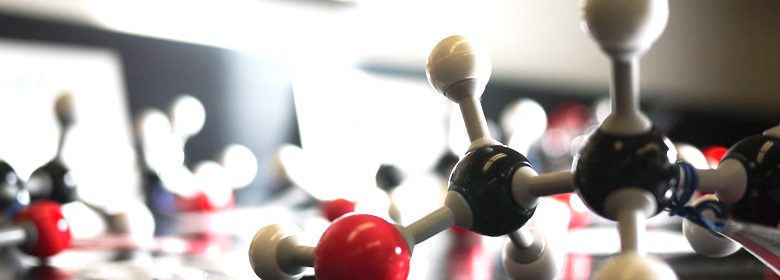This ongoing study began in the summer of 2013 and investigates the effect of biochar and soil fungi on the growth of plants in a typical raised bed garden environment.
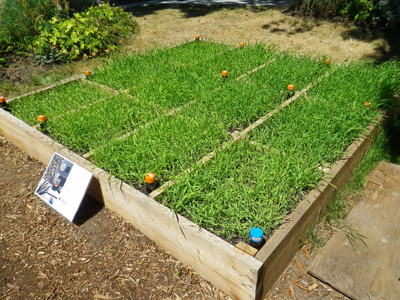
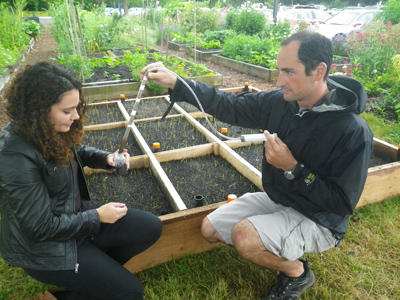
Left: Winter rye seeds have started growing in their beds with soil enriched with biochar and fungi. Right: Project members Ana Mota and Marcus Stein collect water samples from the garden beds.
Rationale
Biochar has the ability to hold onto nutrients and water. Certain soil fungi are known to improve plant nutrient uptake. Soil fungi are known to colonize biochar. How do these properties affect the growth and drought tolerance of plants in a typical city garden? Can we make a biochar/fungi soil booster to improve garden performance?
Methods
In this experiment we divided a raised bed garden into 12 equal sized cells, and installed drainage pipes below the soil to collect the water that leaches through the soil. We created six different soil mixes that varied the amount of biochar and the type of soil fungi. Each of the 6 mixes is in two of the plots. Each was planted with the same number and type of winter rye seeds. We are monitored plant growth and yield and the nitrogen in the plants, water, and soil.
Results
Biochar had no negative or positive effect on rye grass germination or yield. It did, however, greatly reduce the amount of nitrate that leached from the soil (via drain-water). This is a demonstration of biochar’s ability to improve nutrient retention in soil.
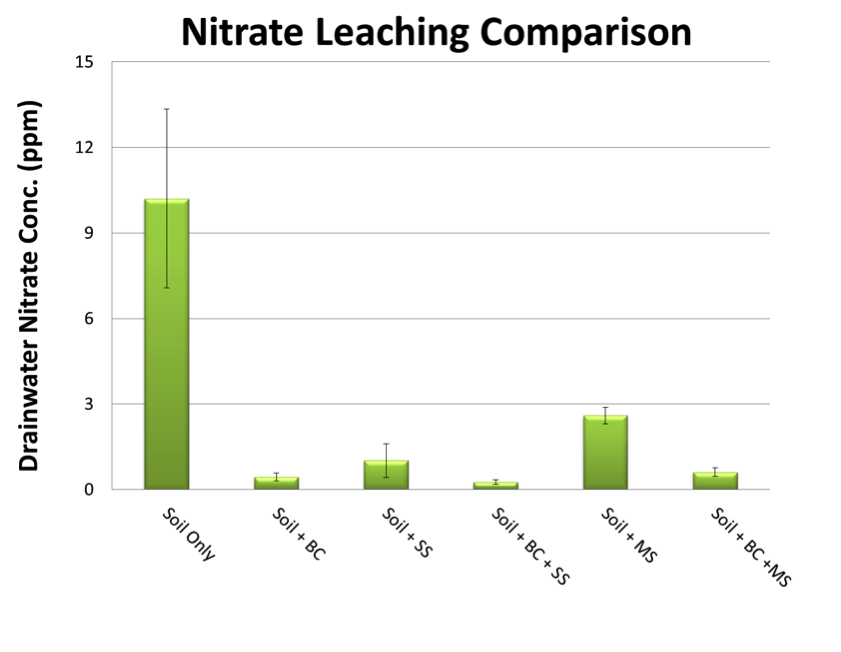
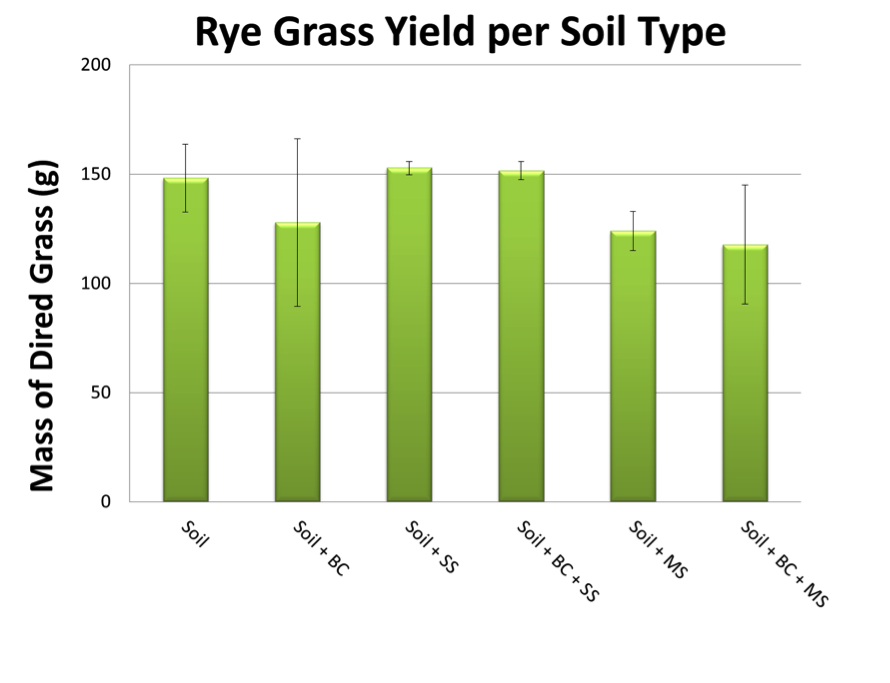
Diacarbon Energy Inc., National Sciences and Engineering Research Council, Langara Research Committee.
